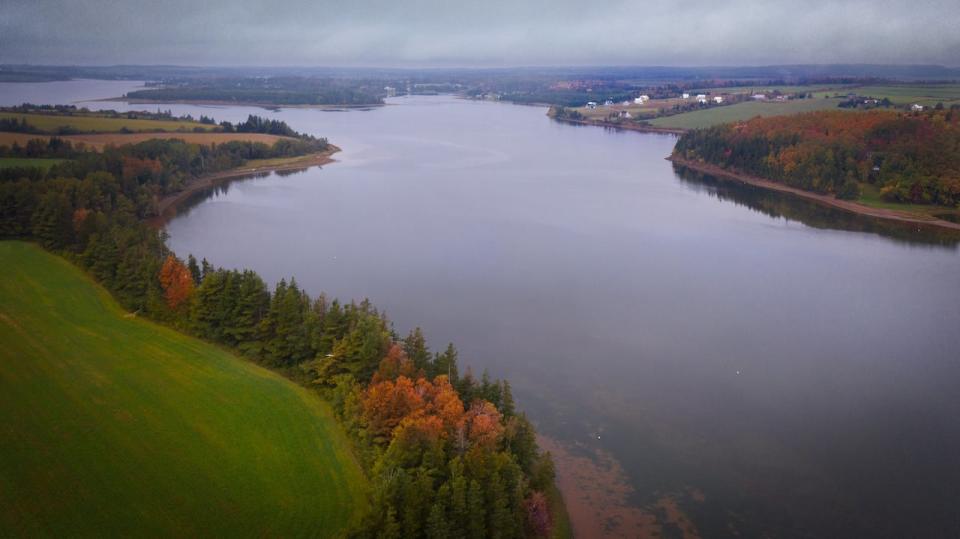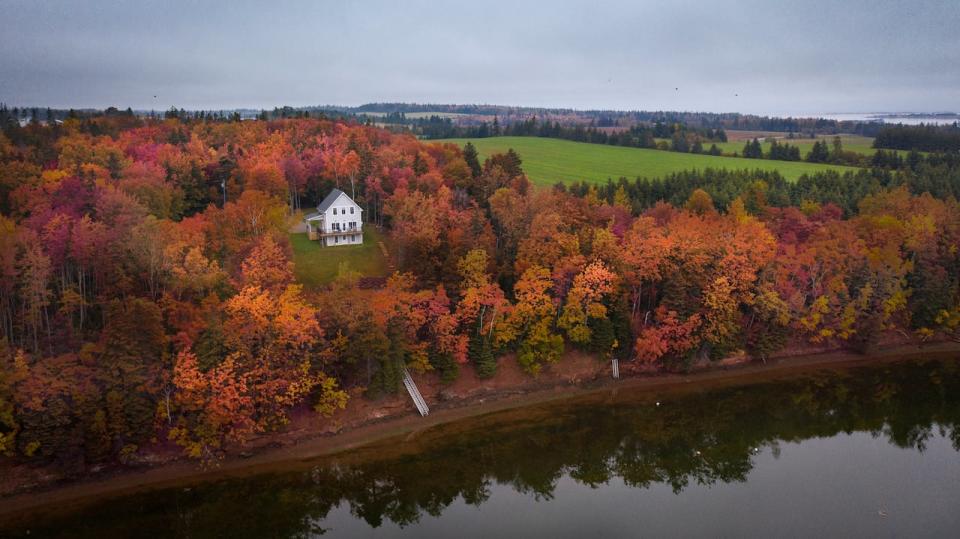Marking 250 years of the New London settlement
This summer marks 250 years since Quaker settlers first arrived on P.E.I.'s North Shore, aiming to establish a home for themselves after being driven from their native London.
Thus, New London was born.
"The Quakers had been persecuted in England by the established church because they were too far ahead of their time," said Island historian John Cousins.
"They were the first people to petition against the slave trade, for instance. They were the first people … to educate their daughters as well as their sons."
Cousins is also the author of a book, titled New London: The Lost Dream, which was published in 2016. And for the 250th anniversary of the settlement, the former Westisle Composite High School teacher and UPEI instructor will be speaking at St. Thomas Church in Springbrook, the Anglican Parish of New London.

"It was a very unique place," Cousins said. "It was a compact, commune-like town is what they built."
The celebration in Springbrook on June 30 will mark — to the day — when the first boat of Quakers arrived on P.E.I.
Unlike some settlements where historians have to guess what the founders' experience was like, Cousins lucked out with not just one, but three preserved diaries from that time.
"It's incredible to have even one account of the day that a settlement was founded because we just don't have them in Canada," he said.
The diaries include those of Robert Clark, the wealthy English merchant who planned the voyage, as well as Joseph Roake and Benjamin Chappell.
Nearby Elizabethtown is thought to be named after Clark's wife. Roadways in the area were given familiar names like Leadenhall Street to match their "old" London counterparts.
Some 200 feet along one of those roads is where about 15 long log houses were built.
"They were divided into two across the middle and there would be a family at this end and four or five fishermen at this end," Cousins said.

The driving force of the local economy was intended to be salt fish, as well as a mill that had been built just up the Stanley River. But as the settlement developed, things weren't easy.
"The first winter was a terrible winter, and there were people who died of starvation in that little town," said Cousins.
Around that time, one of the diaries said, the men of the community set off to attack another settlement in Charlottetown. But Cousins will never know what happened to them.
"The next two or three pages, someone cut them out," he said. "It's a heartbreaker."
Lucy Maud Montgomery, she probably never knew she had Quaker ancestors. — John Cousins
Cousins first became interested in the settlement through researching his own family history. But like many historians, he was soon drawn down the rabbit hole.
"My ancestor on my father's side came there," he said. "His name was John, and he married a Quaker girl."
From his research, Cousins discovered that she was a Townsend, likely related to the area's only farmer, James Townsend.
Many descendants of the Townsends, or of other Quaker families like the Campbells and the Stewarts, are still on the Island today.
And some of the P.E.I.'s most famous residents are connected to the New London settlement.
"Lucy Maud Montgomery, she probably never knew she had Quaker ancestors," Cousins said.
'A struggle from the beginning'
The Quakers tried to recruit more families from England to join their settlement. But a second voyage the following year proved catastrophic.
"The ship was wrecked on the black banks, which is 30, 40 miles north along the coast," Cousins said.
There was miraculously only one death, but the rest of the passengers were stranded for more than a week before being rescued.

"Those people, men, women and children and babies, were on a sandbank for nine days in November snow and sleet," Cousins said.
The Quakers lost the ship, winter supplies, and motivation.
"It was a struggle from the beginning," Cousins said.
For years, the settlement continued to persevere as best it could. But it declined over time as modernity arrived on P.E.I.
"The death blow would have been 100 years, almost, later when they built this major bridge across the southwest river there," Cousins said.
"So the community died, it withered away. It continued to exist, but it never developed into anything bigger."
Present-day New London is a little further from the mouth of the river than the old settlement was. But Cousins said there are still traces of Quaker roots embedded in P.E.I.'s history.


